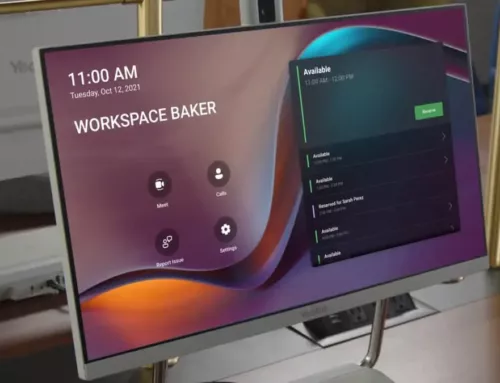In 2023, Statista reports that 6.92 billion people in the world use a smartphone. This means that more than 86% of the world uses a smartphone.
Ten years ago this percentage was only around 33%, so the boom in technology use is clear.
With over 95% of teenagers and young adults having smartphones in America, educational institutions are finding many opportunities to implement augmented reality (AR) into the classroom.
Read on to learn more!

Benefits of AR in the Classroom
What is augmented reality?
Using an existing environment, AR superimposes videos, graphics, and sounds around you, giving the user a heightened, immersive experience. There are several components that are used to put these images on the environment around you. They include sensors, cameras, processing, projection, and reflection.
In previous blog posts, we’ve discussed how AR can be used in a business or office setting for meetings or collaborations, but what are some of its benefits in a classroom?
For starters, student engagement will skyrocket due to AR’s immersive capabilities.
Students will also get a deeper understanding of the topic at hand. AR headsets allow the user to make 3D models that can be pulled apart and analyzed piece by piece.
Let’s not forget about AR’s collaborative capabilities either. Students can use AR headsets to create meetings for class projects, and teachers could assign practice questions built through the headset.
Just as a CEO can send important information to his employees via AR, a teacher or professor could do the same with class material.

Where Schools Stand with AR
It’s important to note that AR presents transformative opportunities for the educational system, however, less than 10% of schools have AR adopted into their learning processes.
Some reasons for such a low number could be because of the amount of AR equipment needed, teachers’ mixed opinions of the quality of AR learning, questions about AR’s value to education, and of course lack of funding. All of these reasons are valid, but AR implementation doesn’t have to happen right away for these schools.
Just like anything else, there needs to be a test to see if it works out for the school, class size, course content, etc. Some classes may not need AR learning, and that’s okay, but the next class down the hall might need it. An acting class may not benefit from AR headsets, but a biology or international business class might.
Overall, AR is growing in popularity for its fun and use cases. In the teaching world, educators know how hard it can be to get a complex topic across to a student, let alone a whole classroom, and AR could help bridge that gap. Students can experience a deeper sense of learning, and with all of the capabilities that AR brings to the table, it could very well change the educational system for the better.
If you’re interested in augmented reality inside schools or you want to learn more about augmented reality as a whole, get in contact with an Ultimate Technologies Group representative today!



